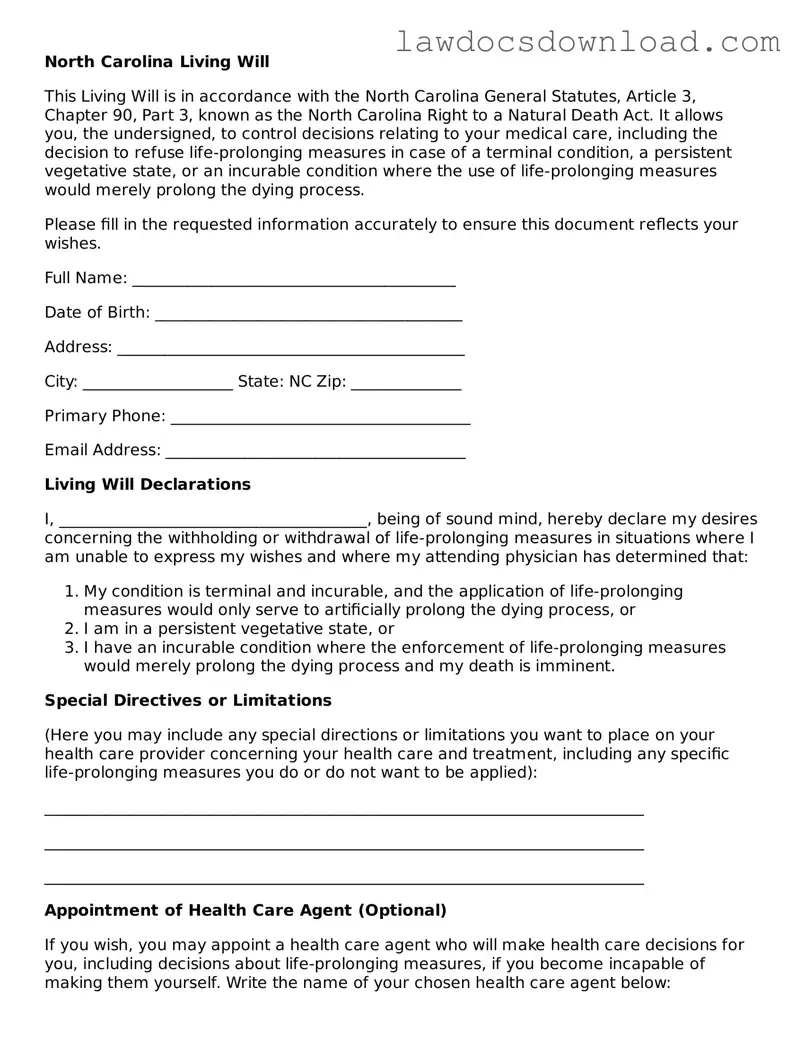North Carolina Living Will
This Living Will is in accordance with the North Carolina General Statutes, Article 3, Chapter 90, Part 3, known as the North Carolina Right to a Natural Death Act. It allows you, the undersigned, to control decisions relating to your medical care, including the decision to refuse life-prolonging measures in case of a terminal condition, a persistent vegetative state, or an incurable condition where the use of life-prolonging measures would merely prolong the dying process.
Please fill in the requested information accurately to ensure this document reflects your wishes.
Full Name: _________________________________________
Date of Birth: _______________________________________
Address: ____________________________________________
City: ___________________ State: NC Zip: ______________
Primary Phone: ______________________________________
Email Address: ______________________________________
Living Will Declarations
I, _______________________________________, being of sound mind, hereby declare my desires concerning the withholding or withdrawal of life-prolonging measures in situations where I am unable to express my wishes and where my attending physician has determined that:
- My condition is terminal and incurable, and the application of life-prolonging measures would only serve to artificially prolong the dying process, or
- I am in a persistent vegetative state, or
- I have an incurable condition where the enforcement of life-prolonging measures would merely prolong the dying process and my death is imminent.
Special Directives or Limitations
(Here you may include any special directions or limitations you want to place on your health care provider concerning your health care and treatment, including any specific life-prolonging measures you do or do not want to be applied):
____________________________________________________________________________
____________________________________________________________________________
____________________________________________________________________________
Appointment of Health Care Agent (Optional)
If you wish, you may appoint a health care agent who will make health care decisions for you, including decisions about life-prolonging measures, if you become incapable of making them yourself. Write the name of your chosen health care agent below:
Health Care Agent's Full Name: ______________________________________________
Relationship to You: _________________________________________________________
Primary Phone: ______________________________________________________________
Email Address: ______________________________________________________________
Signatures
This document will not be valid unless it is signed in the presence of two qualified witnesses, who must also sign the document. The witnesses cannot be related to you by blood or marriage, entitled to any portion of your estate, your attending physician, or employees of your health care provider.
Signature of the Declarant: ___________________________ Date: _________________
Witness 1 Signature: ________________________________ Date: _________________
Witness 2 Signature: ________________________________ Date: _________________
This Living Will is made durable and will not be revoked by my disability or incapacity. It can only be revoked by me or by my appointed health care agent in writing.

